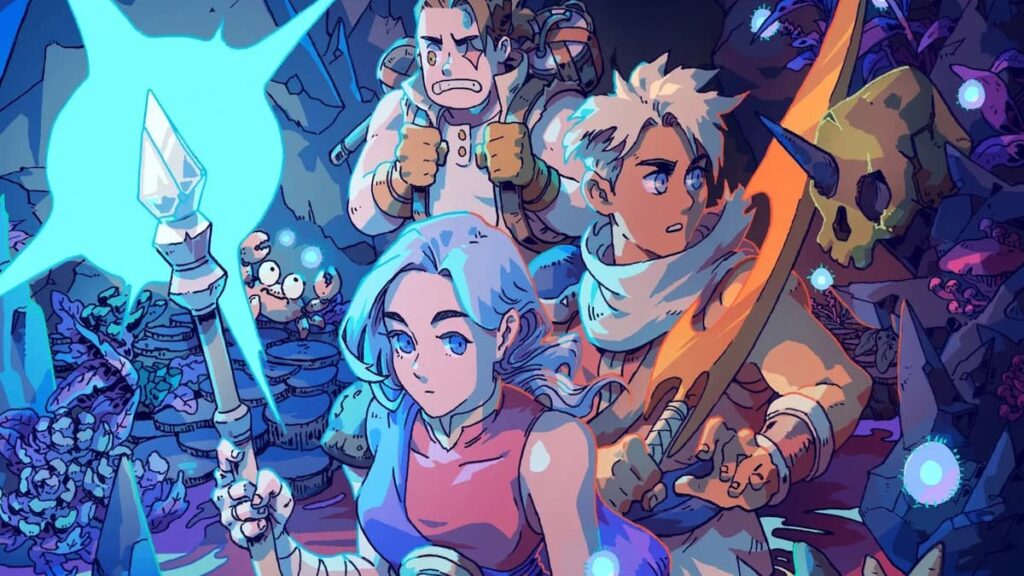
Image source: Sabotage Studio
2023 was an interesting year in the world of video games. On the one hand, we had hit after hit, with so many stellar releases that I struggled to keep up. On the other hand, the industry suffered mass layoffs, with some estimates suggesting that over 10,000 people lost their jobs. Cracks are starting to show. And although it’s easy to feel removed from the development side of video games, the reality is that developing and playing games are intrinsically linked. It’s up to us gamers to influence the direction of the industry, often with our wallets. With that in mind, here are 5 things we gamers should be doing this year to help shape the hobby we love.
Resist the Subscription Push
Publishers’ push into the video game subscription service model is now well and truly underway. Although Sony has been tight-lipped recently about PS Plus subscriber numbers, the numbers tend to hover around a very respectable 40 million. Microsoft has been similarly cagey about Game Pass subscriber numbers, although that figure seems to be around 25-30 million.
But there’s only ever one reason why companies don’t shout about their figures: They don’t consider them worth shouting about. The painful PS Plus price increase may have something to do with this on the PlayStation side. And there’s no doubt that, following Microsoft’s Activision-Blizzard-King acquisition, the Game Pass price will follow suit.
All that’s to say that we gamers should be careful about surrendering ourselves to subscription models. Renting games through subscription services can be a great way to discover hidden gems and try out games we wouldn’t usually give a second look. But the value is only there if we use PS Plus and Game Pass to its full extent. I’ve found myself picking up more and more physical copies of games that I desperately want to play (more on that shortly), so subscription services don’t hold the same allure they once did.
I’ve not even touched on the slew of other subscription services that the big publishers are attempting. Take the new staggeringly overpriced and appallingly-named Ubisoft+ Premium, for example, as one to think very hard about before signing up to. And then don’t.
Support Indie

Sadly, 2024 has started like 2023 ended: with continued mass layoffs at video game studios. Affecting every size of studio, from micro indies to behemoths like EA, and across every conceivable platform, it has been a tough time for the people who make games.
But not all of these redundancies are alike. Some will have been sadly necessary as smaller studios struggle with crowded release schedules, the increasing costs of running the studio, and general high inflation worldwide. Other layoffs, however, have been made despite record revenue to massage the bottom line and appease shareholders in the short term. By all means we should buy the latest AAA games if our hearts are set on them, but it’s important to realize that if we’re doing so to “support” the developers, it doesn’t work. When it comes to indie studios, however, it absolutely does work.
2023 saw some stunning indie gems like Dredge, Sea of Stars, and the ludicrous Pizza Tower, and we absolutely need to support these labors of love. I’m not advocating trying to pick up every indie game under the sun this year but, if something weird and wonderful takes our fancy, we owe it to ourselves to pick it up. Not to wait for it to appear on a subscription service, mind you. Actually, buy it.
Buy More “AA” Games
So-called “AAA” games – the big-budget, marketed-to-hell ones – are getting ever more costly to make. Many in the industry believe that these nine-figure development budgets are unsustainable. With landmark games like Insomniac’s Spider-Man 2 costing over $300 million to make, it’s clear to see that AAA games need to sell tens of millions of copies to make a profit. These ever-more-costly gambles will, inevitably, prompt big publishers to put all their eggs in one basket, market the heck out of their big titles, and take fewer risks.
This isn’t the case with “AA” games, however. Sitting below “AAA” in terms of team size and development and marketing budgets, AA games can afford to take more creative risks. For a great example in 2023, look no further than Nacon’s Robocop: Rogue City. A little on the janky side and lacking some of the polish you may hope for in AAA games, Rogue City is nevertheless great fun and truly honors the source material.
Again, I’m not suggesting shunning AAA games. That’ll never happen, and I’m just as excited to play Final Fantasy VII: Rebirth as anyone else. But these lower-budget games need our support to realize their creative potential and, crucially, retain the team members to tackle their next project.
Never, Ever Preorder
It feels like every year there’s a horror story about people preordering a game based on hype alone and getting burned on release. Although it’s fantastic now, Cyberpunk 2077 had one of the worst launches of the decade so far but still sold millions of units based on pre-order hype. More recently, The Day Before still managed to hoodwink a disturbing number of people into preordering the blatant scam.
Obviously, companies want you to stump up your hard-earned cash in advance, but to do so is and always has been foolhardy. With review embargoes becoming later and later, often even on release day, you’re preordering based on blind faith alone. And there’s no good reason to do so. We won’t miss out on the game. Holding off a few days until a good subsection of critical reviews has rolled in isn’t going to kill us, even if the hype makes waiting feel unbearable.
There are exceptions to the rule, of course. You’re probably going to be fine with a Legend of Zelda game, for example, and critics will always fawn over the latest franchise entry. But generally, we should get in the habit of abstaining from preordering, even if we still pick the game up at full price a couple of days after release.
Keep Buying Single-Player Games
Finally, 2024 cannot be the year of the live service game. This is a selfish one, I know, because I always have and always will adore immersive single-player experiences, and I know many gamers who adore their favorite multiplayer blast with pals. But there’s no denying that many of the outstanding games in recent years, from God of War Ragnorok to Elden Ring and The Legend of Zelda: Tears of the Kingdom are primarily or exclusively single-player games.
Fortunately, the live service market has become so saturated that publishers are starting to hesitate about pouring eye-watering sums of cash into yet another “endless” game. Our time is finite, and it’s simply not possible to devote hours a day to multiple live service titles. Sony had already adjusted its live service plans at the end of last year, so it’s a reasonable bet that other mega-corporations will take note and do likewise.
Admittedly, there’s little risk of single-player games disappearing in the near future. They’re still immensely popular, particularly with us gamers who like to seek out new and exciting experiences. But it’s important that we keep showing companies how much we adore single-player experiences so that we continue to get them.
So, there you have my thoughts on 5 things we gamers should be doing for our hobby in 2024 to play our part in keeping the industry healthy and competitive. 2023 has been a very difficult time for developers, and 2024 isn’t shaping up much better, so it’s more important than ever that we support the games that we love, particularly smaller-budget ones. Now, if you’ll excuse me, I’m off to play Jusant.





